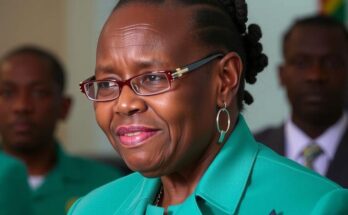Uruguay will conduct a presidential election this Sunday, emphasizing key issues such as governance, economic stability, and social justice amid its democratic process. The election follows a period of challenges and changes, reflecting the citizens’ engagement in their nation’s future.
Uruguay is set to hold elections this Sunday to select its next president, marking a significant moment in the nation’s democratic process. As the electoral landscape unfolds, key issues surrounding governance, economic stability, and social justice are anticipated to take center stage. The election comes after a period of notable challenges and changes, highlighting the citizens’ involvement in shaping the nation’s future trajectory. In light of these developments, a detailed examination of notable aspects of Uruguay is warranted to understand the context of this upcoming election.
Uruguay is a small South American nation known for its progressive social policies and high standard of living. It enjoys a stable democratic history and has often been viewed as a model of governance in the region. Over recent years, the country has faced various economic and social issues, influencing political discourse as it prepares for major electoral events. The upcoming presidential election offers citizens the opportunity to voice their opinions on pressing matters affecting their lives.
In summary, Uruguay’s upcoming presidential election represents a critical juncture for its citizens to impact the direction of their governance. As electoral participation rises, the focus on key social and economic issues will be crucial in determining the nation’s path forward. This election not only reflects the democratic values of Uruguay but also underscores the importance of active citizenship in shaping the political landscape.
Original Source: www.barrons.com




